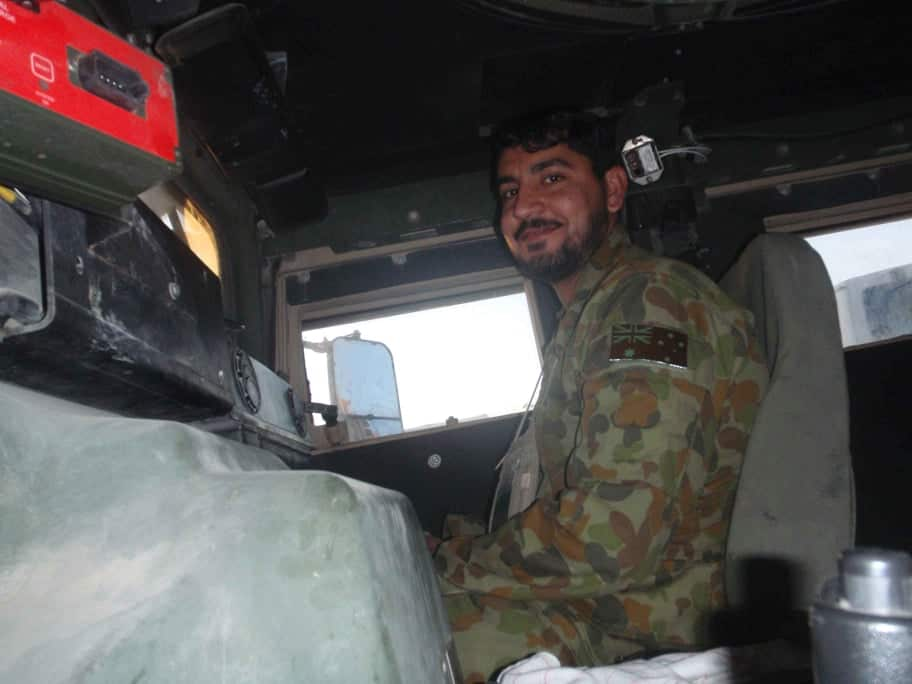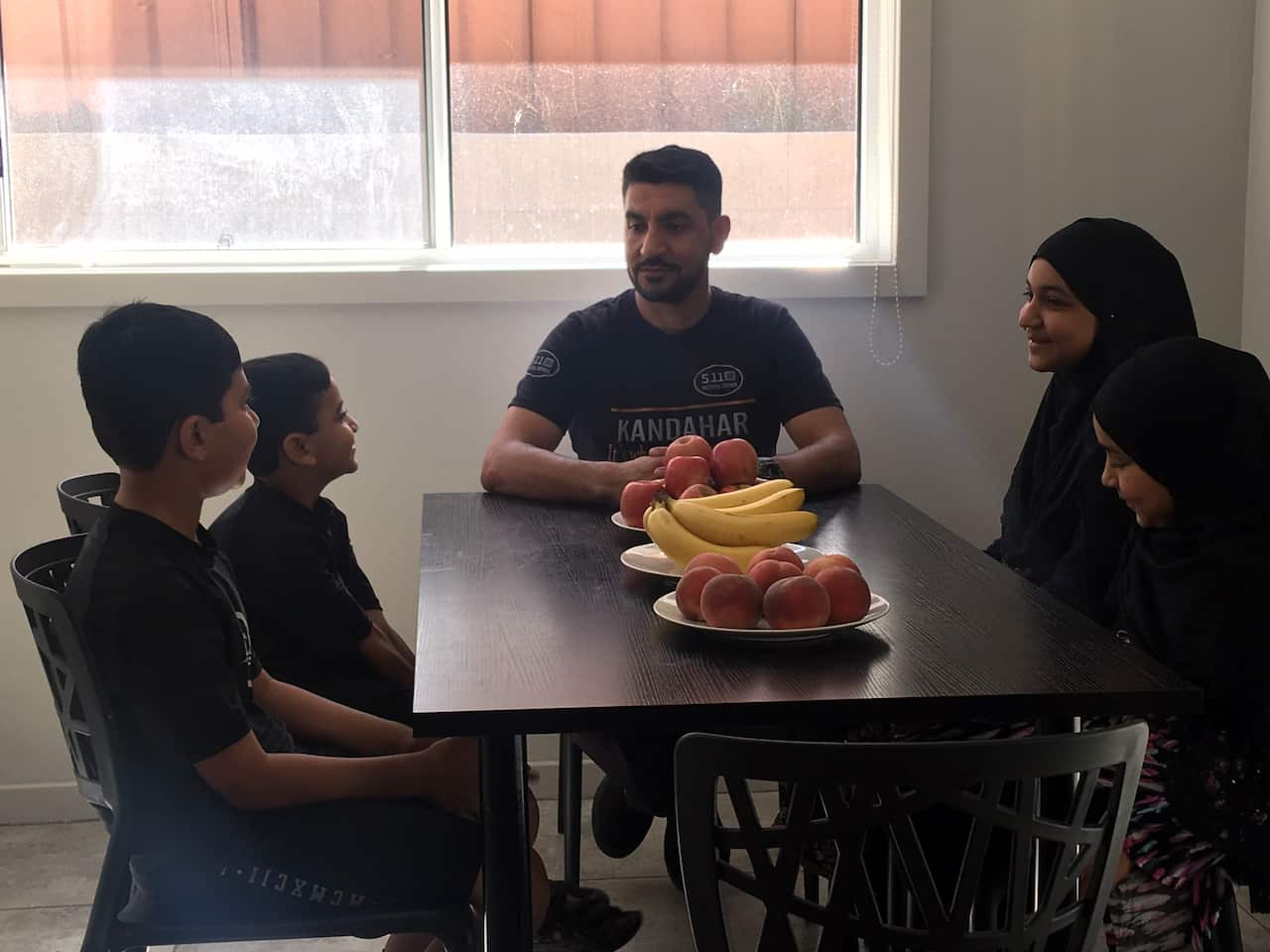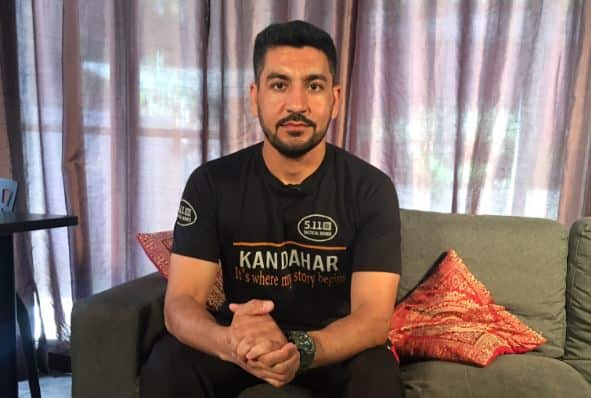Ahmad Shah Shahi did one of the riskiest jobs in the Australian Defence Force (ADF).
For six years he was a Pashto interpreter and culture advisor helping soldiers on the frontline in Afghanistan.
“There were many ambushes, because it is normal, before, in Afghanistan, there were at least two suicide attacks every week,” the 34-year-old told SBS News.
“It means I have faced more than a hundred attacks, like suicide bombers, ambushes and even IEDs.”
In 2001, the ADF joined the US-led war against terrorism in Afghanistan, but like many other coalitions forces, Australia was caught up in its longest-ever war.
While fighting in Afghanistan, Australian forces had to rely on locally engaged employees at all levels, who would wear Australian uniforms. Retired army captain Jason Scanes says the role of interpreters such as Ahmad was highly complex.
Retired army captain Jason Scanes says the role of interpreters such as Ahmad was highly complex.

Ahmad worked for the Australian Defence Force during the US-led war against terrorism in Afghanistan. Source: Supplied
“Those interpreters, we call them ‘missing essential personnel’. They put themselves at great risk and danger, to them and their families, to assist us in Afghanistan.”
“The role of interpreting is very complex; it’s about building relationships, engaging the atmospherics, reading body language in the background chatter, and it’s not as simple as interpreting the spoken word.”
In 2013, Australia ended its combat mission and withdrew its forces from Afghanistan. The decision, Ahmad said, put many locally engaged employees at risk.
“I was a little bit confused and disappointed because it’s not only me but the whole people, the Afghan population. They were not sure of their future.”
Life for Ahmad and his family changed as a result and for safety reasons they took the difficult decision to go into hiding.
They were left to count the days hoping that one day Australia would provide them with protection, but they didn’t know the wait might take several years.
“There were many problems for me, as you know, there are many security risks in Afghanistan, especially for interpreters, or who supported the coalition forces. I was left behind, in Afghanistan and I was in a critical security situation that I couldn’t go to school, university or do my own business,” he said.
“If the Taliban or the enemies know that you have worked with the coalition forces, so they are going to kill, kidnap or even a member of your family.”
In late 2012, The Australian government announced it would offer settlement for eligible locally engaged employees who were at risk.
Since the program began, more than 1,000 former ADF contractors and their family members were brought to Australia.
And after a long wait of nearly seven years, Ahmad, his wife and their four children, aged 6-13, were brought to Australia at the start of 2020. They have settled in Newcastle.
“I’m one of the lucky guys. I have waited for seven years, and at the same time, I want to say thank you to the Australian government that they helped and supported me,” he said. The change is still settling in.
The change is still settling in.

Ahmad and his family now live in Newcastle, NSW. Source: SBS News
“It’s still in my mind, I’m not settled over here. But I woke up and said, ‘this is Australia. It isn’t Afghanistan anymore’. So I [feel secure].”
“I’m not faced anymore with problems, so I start my normal daily life. I take my children to school, so I then realised that there aren’t any more problems.”
The numbers of former ADF contractors who are waiting for protection is unknown. The ADF did not provide the number of contractors who have applied for an Australian protection visa, only those who have been successful.
“In order to protect the privacy and security of our locally engaged workforce, Defence does not provide a breakdown of resettlement figures,” a Defence spokesperson said.
Captain Scanes says the government has an obligation to bring them to Australia.
“It’s a moral obligation, and I think Australia has that. Our soldiers have that as well for their interpreters. I don’t think there’s anybody that would say that they don’t deserve a fair opportunity to make it here to safety in Australia for their work in Afghanistan with coalition forces.” And while he is grateful to be in Australia Ahmad is also asking for protection for the colleagues he left behind.
And while he is grateful to be in Australia Ahmad is also asking for protection for the colleagues he left behind.

Ahmad is relieved to have been brought to Australia and wants the same for his former colleagues. Source: SBS News
“I want to say thank you to the Australian government that they helped and supported me. But I want to request them ... please help the ones that are still left in the dark in Afghanistan because they are the same interpreters as me.
“They were the same interpreters who supported the Australian Defence Force. They need protection.”
A Defence spokesperson said: “Australia is committed to the safety of all personnel working for the Australian Government in Afghanistan, including locally engaged Afghan employees”.
If they meet certain criteria “Afghan locally-engaged employees are given the highest visa processing priority but are still subject to the same visa processes as other refugee and humanitarian visa applicants”.
Ahmad is now looking forward to a new chapter in Australia.
“Before I was in the dark, but now I am bright. I mean, I will have a very good future.”

